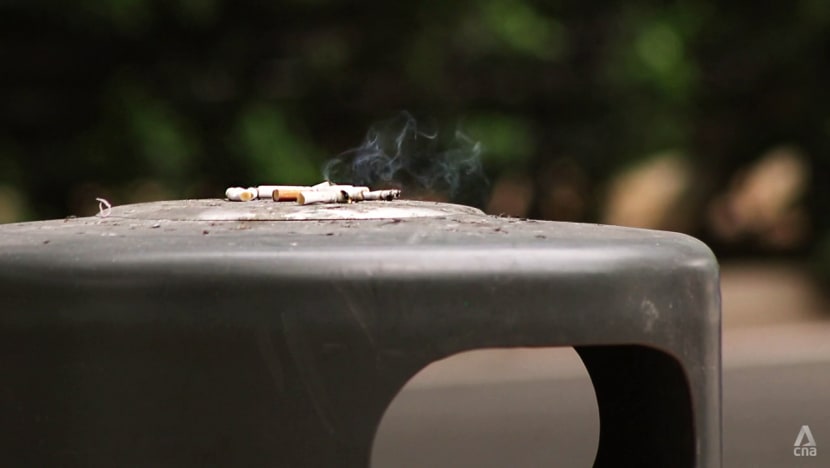Commentary: Malaysia wasted an opportunity to be bold with smoke-free law
Will Malaysia’s new tobacco control law be effective in battling smoking and vaping, without a “generational endgame” ban? Kuala Lumpur-based health journalist Loh Foon Fong gives her take.


This audio is generated by an AI tool.
KUALA LUMPUR: Malaysia is set to finally pass the long-awaited Control of Smoking Products for Public Health Bill 2023 to regulate smoking products such as cigarettes and vapes. But it looks like Prime Minister Anwar Ibrahim’s government isn’t interested in ending smoking or vaping.
Health experts had already criticised the government’s decision to drop the “generational endgame” provision before tabling the legislation. This would have protected those born from 2007 by prohibiting them from ever legally buying smoking products.
This came on the heels of New Zealand’s new government announcing that it will repeal its world-first smoke-free laws, which included a similar generational ban.
The removal of Malaysia’s generational ban clause led to fiery protests in the lower house from Members of Parliament (MPs) in the opposition and within the government. Ruling coalition Pakatan Harapan’s Pasir Gudang MP Hassan Abdul Karim equated it to bowing to Big Tobacco pressure.
Despite many dissenting views, the Bill was passed with a majority voice vote on Nov 30. It is pending approval in the upper house.
Health Minister Dr Zaliha Mustafa reiterated that the provision was dropped in consideration of the Attorney-General’s Chambers’ views that the law could be challenged in court for contravening Article 8 of the Federal Constitution on inequality and discrimination for treating those born before and after Jan 1, 2007 differently.
IN DIRE NEED OF NEW TOBACCO LAW
Malaysia is in dire need of a new, more comprehensive tobacco law, even without the generational endgame provision. The Control of Tobacco Product Regulations 2004 under the Food Act 1983 doesn’t apply to vapes and other new smoking products.
The new legislation will also close gaps in existing laws. Previously, it had been illegal to sell vapes to minors under the Poisons Act 1952 as nicotine products were listed as a controlled substance. In April, the government exempted nicotine liquids and gels from the Poisons List in order to tax vaping products and since then, minors in Malaysia have been able to buy e-cigarettes or vapes without any prohibitions in place.
This move was shocking as it left a gap before the current Bill could be passed to govern the sale of vape products and protect minors. Health experts are also unconvinced that the tax rate will be high enough to dissuade vape use.
Under the old laws, tobacco products are not allowed to be used in advertisements, promotions or in sponsorships. Once the new law comes into force, this will also apply to non-tobacco smoking products.
Vape shops had quickly mushroomed after October 2021, when the then Barisan Nasional government announced plans to impose an excise duty on nicotine liquids and gels which would effectively legalise vaping.
This derailed the health ministry’s efforts to discourage vaping. E-cigarettes were sold openly in shops or online. Vape companies could openly promote vaping, using marketing tactics that healthcare and consumer groups say target youths, and even sponsored events. People started to vape openly and on the streets.
Overall, passing a new standalone tobacco law will have some positive effects. Once the law is enacted and enforced, the laissez-faire period will have to end.
The revised Bill prohibits the sale of smoking substances or substitute tobacco products (including electronic cigarettes or vaping products) to those below the age of 18, with fines up to RM20,000 (US$4,277), imprisonment for up to one year, or both for a first offence. Vape sellers will also no longer be able to advertise nor offer smoking product sponsorship.
NO BOLD STEP FOR PUBLIC HEALTH
The new standalone tobacco law is necessary but stops short of being bold for the sake of public health. Having been publicly contemplated for more than a year, the smoking endgame policy is now sorely lacking in the approved Bill.
Malaysia’s vision is to be a smoke-free country by 2040 - usually defined as reducing the prevalence of smoking to less than 5 per cent by global experts. But how will that be achieved?
The old tobacco controls have not been sufficient - more than 20 per cent of Malaysian adults, or almost 5 million people, smoke according to Malaysia’s national health survey in 2019. Research suggests other measures like reducing nicotine content in tobacco to non-addictive levels could help create a smoke-free environment.
It would have been ideal if previous Malaysian governments had banned vaping when it first emerged in the early 2010s, while working on minimising cigarette smoking. Former health minister Khairy Jamaluddin can be credited for thinking out of the box and proposing the generational endgame measure as a middle ground, after his government refused to ban vaping.
Dr Zaliha has said that the ministry did not discount the possibility of re-introducing the generational endgame provision in future if there is a need for it in future. Still, not doing it now is a wasted opportunity.
With a government that has called for healthcare reforms, Malaysia’s aim should be achieving smoking endgame targets, not merely controlling smoking products. Many health achievements will just end up in smoke without a goal to end smoking,
Loh Foon Fong is a senior freelance health journalist based in Malaysia.


















